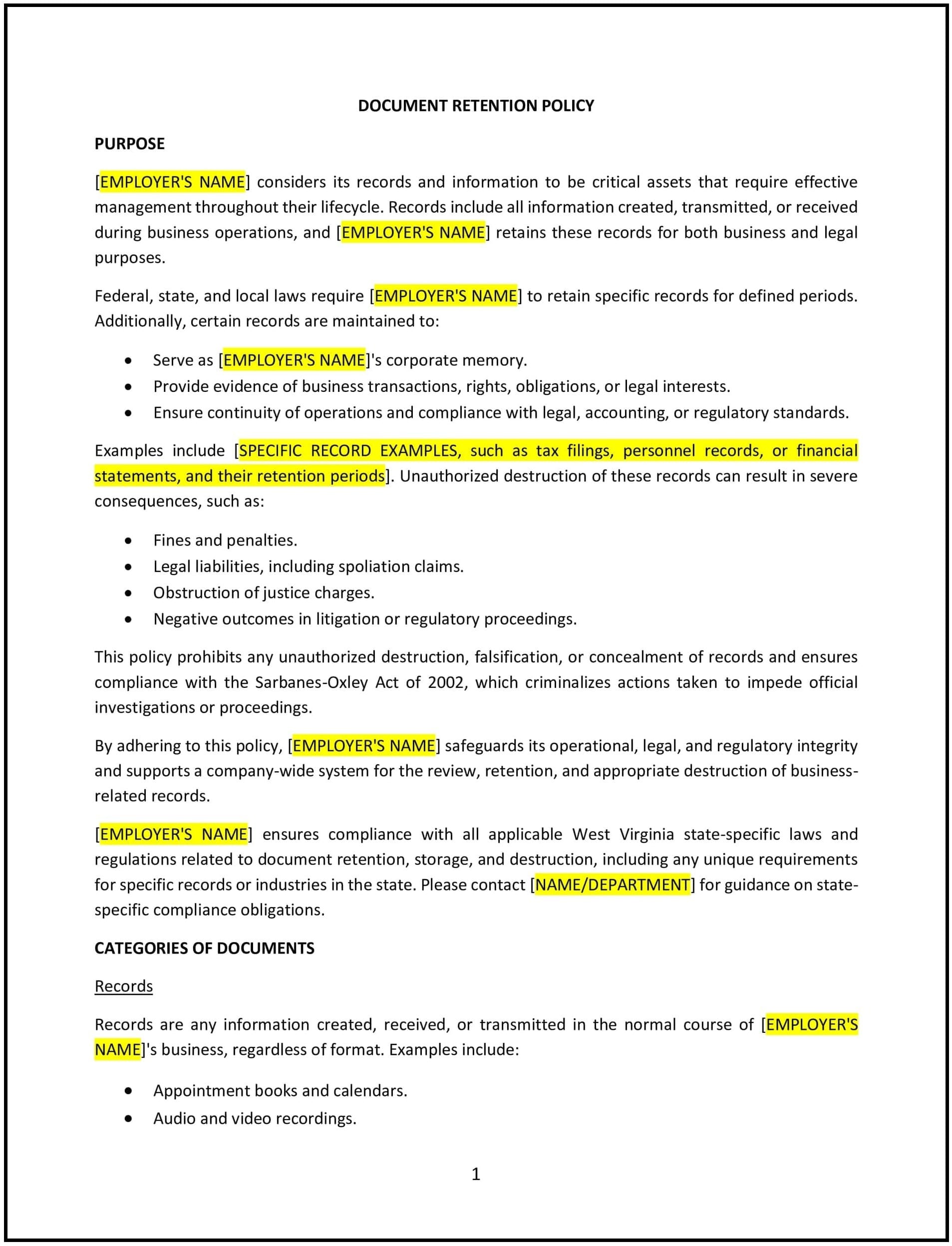Document retention policy (West Virginia): Free template
Got contracts to review? While you're here for policies, let Cobrief make contract review effortless—start your free review now.

Customize this template for free
Document retention policy (West Virginia)
In West Virginia, a document retention policy outlines guidelines for managing the creation, storage, and disposal of business records. This policy supports compliance with state and federal laws, supports operational efficiency, and safeguards critical information. By adopting a clear retention framework, businesses can manage risks, reduce costs, and maintain accountability.
This policy establishes retention schedules, storage requirements, and procedures for securely disposing of records that are no longer needed.
How to use this document retention policy (West Virginia)
- Define covered records: Specify the types of documents included in the policy, such as contracts, tax records, financial statements, employee files, and electronic communications.
- Establish retention schedules: Create a retention timeline for each document category based on legal, operational, and historical requirements.
- Outline storage procedures: Provide guidelines for securely storing physical and digital records, including backup requirements and access controls.
- Set disposal guidelines: Specify methods for securely disposing of documents, such as shredding, deleting, or using certified destruction services, to ensure confidentiality.
- Support compliance: Align the policy with West Virginia laws and federal regulations, including industry-specific requirements for data retention.
Benefits of using a document retention policy (West Virginia)
- Promotes compliance: Helps businesses adhere to West Virginia laws and federal regulations regarding recordkeeping and data protection.
- Mitigates risks: Reduces the likelihood of legal disputes or fines by maintaining accurate and complete records.
- Improves efficiency: Streamlines recordkeeping practices, saving time and reducing storage costs.
- Protects sensitive information: Safeguards confidential business and employee data through proper storage and disposal procedures.
- Enhances accountability: Provides a clear framework for managing records, ensuring consistency and transparency.
Tips for using a document retention policy (West Virginia)
- Communicate the policy: Share the policy with all employees during onboarding and ensure it is easily accessible for reference.
- Train staff: Provide training on document retention requirements and proper recordkeeping practices.
- Monitor compliance: Conduct regular audits to ensure adherence to the policy and identify areas for improvement.
- Leverage technology: Use document management systems to automate retention schedules, storage, and secure disposal processes.
- Review regularly: Update the policy to reflect changes in West Virginia laws, federal regulations, or business needs.